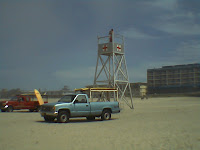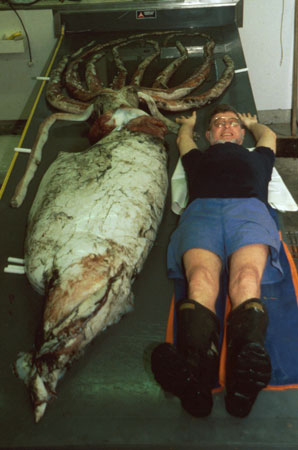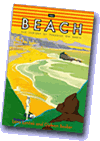There Is Time To Twirl
Rumi understood that there is time to twirl, even when the planet is spinning. Especially when the planet is spinning. Watch the beautiful spin, listen to the beautiful spin. Very salp-ish.
Rumi understood that there is time to twirl, even when the planet is spinning. Especially when the planet is spinning. Watch the beautiful spin, listen to the beautiful spin. Very salp-ish.
Junk up there, junk down here.
 Alas, it's all connected. This baby is a NASA satellite that picks up on how many times it gets hit with space debris. Sadly, the NASA carbon exploring satellite, before itself becoming space debris upon failing at launch, went down in the ocean off Antarctica. Killed a baby penguin (see below). "NASA's OCO satellite to study atmospheric carbon dioxide launched aboard a Taurus XL rocket from Vandenberg Air Force Base in California on Feb. 24 at 1:55 a.m. PST, but it failed to reach orbit. . . . The Mishap Investigation Board led by Rick Obenschain, deputy director at NASA's Goddard Space Flight Center in Greenbelt, Md., verified that the Taurus launch vehicle fairing failed to separate upon command. The fairing is a clamshell structure that encapsulates the satellite as it travels through the atmosphere. The failure to shed the fairing mass prevented the satellite from reaching its planned orbit and resulted in its destruction. . . . The official report of the board contains information restricted by U.S. International Traffic in Arms Regulations and company-sensitive proprietary information. As a result, the board has prepared a summary of its report, which provides an overview of publicly releasable findings and recommendations regarding the OCO mission failure. The summary is available at: http://www.nasa.gov/oco." Oh, poop.
Alas, it's all connected. This baby is a NASA satellite that picks up on how many times it gets hit with space debris. Sadly, the NASA carbon exploring satellite, before itself becoming space debris upon failing at launch, went down in the ocean off Antarctica. Killed a baby penguin (see below). "NASA's OCO satellite to study atmospheric carbon dioxide launched aboard a Taurus XL rocket from Vandenberg Air Force Base in California on Feb. 24 at 1:55 a.m. PST, but it failed to reach orbit. . . . The Mishap Investigation Board led by Rick Obenschain, deputy director at NASA's Goddard Space Flight Center in Greenbelt, Md., verified that the Taurus launch vehicle fairing failed to separate upon command. The fairing is a clamshell structure that encapsulates the satellite as it travels through the atmosphere. The failure to shed the fairing mass prevented the satellite from reaching its planned orbit and resulted in its destruction. . . . The official report of the board contains information restricted by U.S. International Traffic in Arms Regulations and company-sensitive proprietary information. As a result, the board has prepared a summary of its report, which provides an overview of publicly releasable findings and recommendations regarding the OCO mission failure. The summary is available at: http://www.nasa.gov/oco." Oh, poop.

 Many ooligans washing up - witnessed two human-ooligan rescues yesterday. Two teen aged girls, when I pointed at a silvery flopping item, rushed up and saved the one, and a young mother with a newish human baby nestled against her chest carefully bent over and rescued the other, while her unemcumbered sister stood by and watched. I wonder what makes some save ooligans, while others just like to watch? I figure these two washed up ones were dented by sea birds, as they came up with the rising tide.
Many ooligans washing up - witnessed two human-ooligan rescues yesterday. Two teen aged girls, when I pointed at a silvery flopping item, rushed up and saved the one, and a young mother with a newish human baby nestled against her chest carefully bent over and rescued the other, while her unemcumbered sister stood by and watched. I wonder what makes some save ooligans, while others just like to watch? I figure these two washed up ones were dented by sea birds, as they came up with the rising tide.
 F.Y.I. the human brain is over 75% water. Jelly fish, they say, have no brains. Squids, on the other hand, have giant axons.
F.Y.I. the human brain is over 75% water. Jelly fish, they say, have no brains. Squids, on the other hand, have giant axons.



 Humbolt Squids.They are big, and they are coming onshore like nobody's business. The stinking vellelas have not appeared this year, as they did in great drifts two years ago (see "Stinking Phoenicians" post, April 2007).
Humbolt Squids.They are big, and they are coming onshore like nobody's business. The stinking vellelas have not appeared this year, as they did in great drifts two years ago (see "Stinking Phoenicians" post, April 2007). 
Another crowded and tacky nice foggy day at the beach, very still, with a low tide happening. It was sunny earlier this morning, and then the marine layer came in. It's misty. The lifeguard truck came along, headlights on, just checking out the beach. Visibility about 50 feet.
 He came along closer to take a look at me - who was I way out in the tide pools? Did I have a clue about the tide coming in, or was I some gorm from Alberta? A little green car with Alberta plates has been parked at the by-way for two days. Where are they? Lost in the mist?
He came along closer to take a look at me - who was I way out in the tide pools? Did I have a clue about the tide coming in, or was I some gorm from Alberta? A little green car with Alberta plates has been parked at the by-way for two days. Where are they? Lost in the mist? Oh it's just you. Bye now.
Oh it's just you. Bye now. See ya.
See ya.
 It was a quiet day on this nameless beach, which guidebooks once labeled "crowded and tacky," to the delight of those of us who love it. On this beautiful mid-summer day, as you can see, it was packed as usual with loud and obnoxious people. Well, not really. This is where the Salp came up one stormy day, and where the Salp was laid to rest, returning to the great salty all-of-it all. Here is the path to the beach, right where the explorer Clark's men had their salt-making camp. The surf pines and salal are native, as is the little yellow flower growing in the sand. Salal berries are good to eat, and also work as appetite suppressants if you are hungry. I hope Lewis and Clark learned that when they were here, starving, in 1806. Last night, a light rain dimpled the sand, but today is flawlessly blue. A little aluminum crab fishing boat was extraordinarily close in, because the waves are so clement.
It was a quiet day on this nameless beach, which guidebooks once labeled "crowded and tacky," to the delight of those of us who love it. On this beautiful mid-summer day, as you can see, it was packed as usual with loud and obnoxious people. Well, not really. This is where the Salp came up one stormy day, and where the Salp was laid to rest, returning to the great salty all-of-it all. Here is the path to the beach, right where the explorer Clark's men had their salt-making camp. The surf pines and salal are native, as is the little yellow flower growing in the sand. Salal berries are good to eat, and also work as appetite suppressants if you are hungry. I hope Lewis and Clark learned that when they were here, starving, in 1806. Last night, a light rain dimpled the sand, but today is flawlessly blue. A little aluminum crab fishing boat was extraordinarily close in, because the waves are so clement.





 This morning the tide was low and it was a great day for dogs, especially the wet kind. The photo directly above is of a little girl in a bikini with her dog, Bella, a soaking wet, excited, delighted seven-month-old spaniel. The little girl, later on in the day, was out boarding with no wet suit at all. This afternoon, the surf was gentle, warm on the rising tide, so many little kids besides Bella's companion were out wave boarding. The long board surfers left long s-marks on the damp sand as they trudged back to town from the Cove, where they'd no doubt had a nice time riding up and down, up and down on the gentle, so not-gnarly, waves. They seemed in pretty good spirits, anyway. The tire tracks are from the life guard truck, which came down at about 1:30 to see if the clammers were making it back over the low-tide lagoon. No one else drives on this beach, where the surviving gulls from the slaughter in Ocean Beach are now gathering. Around noon, when the tide was way out, and there were clammers but they didn't seem to mind that they were not very good at it - all except a lady who worked the rising tide, grabbing sand crabs with her bare hands, fast as a heron, and slipping them into a gallon jug half-filled with water. Later, her husband was surf casting. The other clammers were using spades, not the tubes with handles that locals use - way more effective. I, of course, was wading, admiring the pryrites and lines of white shell, bands of gold and white, on the lovely sand, composed of granite and basalt, sandstone and limestone, with garnet and amethyst, crystal and jade, mixed in. Then I lay down in the dunes to have a nap. This little castle was nearby. I liked the moat, made out of a piece of cedar bark.
This morning the tide was low and it was a great day for dogs, especially the wet kind. The photo directly above is of a little girl in a bikini with her dog, Bella, a soaking wet, excited, delighted seven-month-old spaniel. The little girl, later on in the day, was out boarding with no wet suit at all. This afternoon, the surf was gentle, warm on the rising tide, so many little kids besides Bella's companion were out wave boarding. The long board surfers left long s-marks on the damp sand as they trudged back to town from the Cove, where they'd no doubt had a nice time riding up and down, up and down on the gentle, so not-gnarly, waves. They seemed in pretty good spirits, anyway. The tire tracks are from the life guard truck, which came down at about 1:30 to see if the clammers were making it back over the low-tide lagoon. No one else drives on this beach, where the surviving gulls from the slaughter in Ocean Beach are now gathering. Around noon, when the tide was way out, and there were clammers but they didn't seem to mind that they were not very good at it - all except a lady who worked the rising tide, grabbing sand crabs with her bare hands, fast as a heron, and slipping them into a gallon jug half-filled with water. Later, her husband was surf casting. The other clammers were using spades, not the tubes with handles that locals use - way more effective. I, of course, was wading, admiring the pryrites and lines of white shell, bands of gold and white, on the lovely sand, composed of granite and basalt, sandstone and limestone, with garnet and amethyst, crystal and jade, mixed in. Then I lay down in the dunes to have a nap. This little castle was nearby. I liked the moat, made out of a piece of cedar bark.
 Here's what some folks are doing out here. Check out the fish count. Lovely halibuts found lately - these fishes are so beautiful.
Here's what some folks are doing out here. Check out the fish count. Lovely halibuts found lately - these fishes are so beautiful.
Speaking of disasters, it has been noticed that animals presage natural disasters like earthquakes, tsunamis, volcanoes, and so forth with super-sensitive skill. Humans are not so lucky. If you are watching a disaster movie, say, about tsunamis, and your dog becomes uncomfortable, grab your emergency kit (you have one, don't you?) and head for the hills. Don't click the next link, if you hate spoilers. By the way, the best "tsumami movie" ever is the one with Tia Leoni, Deep Impact, which has (bonus) not only an asteroid out of control, but also a "tidal wave" a.k.a. a tsunami. Kind of a two-for-one disaster movie. Roger Ebert's review (at link) contains not only spoilers, he gives it 2.5 out of a possible score of 5, rating it on a par with another favorite, Dante's Peak,with Pierce Brosnan, about a volcano eruption.
 It's only funny when it's pretend.
It's only funny when it's pretend.
 Here comes Jupiter, there goes Mars. Actually, it's Mercury that is hiding now. The sun is setting a little earlier, so it's time for banjo concerts in the mist, beach fires, s'mores and smokies, if you like 'em and star gazing. Celestial events: July 21, a total eclipse of the sun (note to self: memorize lyrics), visible only in India and Nepal, China, and the ENTIRE PACIFIC OCEAN, then Jupiter waxes larger than usual, peaking in size on August 14 (as if he's not big enough), and then around August 20, the new moon should allow some pretty good shooting star views, although not like the wild shows we've had the last couple of years - but still, a good show: 60 meteors per hour on August 12 and 13. Our own Perseids, like clockwork. On cloudy nights, if you are human or have a domestic human companion (you cats and dogs, especially), you can stay in and watch great old disaster movies, like Meteor, Deep Impact, Armagedden, etc.
Here comes Jupiter, there goes Mars. Actually, it's Mercury that is hiding now. The sun is setting a little earlier, so it's time for banjo concerts in the mist, beach fires, s'mores and smokies, if you like 'em and star gazing. Celestial events: July 21, a total eclipse of the sun (note to self: memorize lyrics), visible only in India and Nepal, China, and the ENTIRE PACIFIC OCEAN, then Jupiter waxes larger than usual, peaking in size on August 14 (as if he's not big enough), and then around August 20, the new moon should allow some pretty good shooting star views, although not like the wild shows we've had the last couple of years - but still, a good show: 60 meteors per hour on August 12 and 13. Our own Perseids, like clockwork. On cloudy nights, if you are human or have a domestic human companion (you cats and dogs, especially), you can stay in and watch great old disaster movies, like Meteor, Deep Impact, Armagedden, etc.
 Ah, Indian Beach, where Clark of Lewis 'n Clark, the rock duo, walked over Tillamook Head to barter for rotting whale meat. Surfer paradise, but don't tell anyone. (See tiny surfer with long board in the excellent photo by Nathaniel Coalson?) Ecola State Park is a National Treasure, and come 2010, it'll cost ya $5.00 to get in. Take out your trash, losers, and pick up your doggie doo-doo. NO BEACH FIRES or FIREWORKS please! We don't like it! We had a big forest fire last year and it was real scarey. Thank you, beach bums, and thanks to the excellent Oregon State Park Ranger Service for maintaining this wild beauty for all of us to enjoy.
Ah, Indian Beach, where Clark of Lewis 'n Clark, the rock duo, walked over Tillamook Head to barter for rotting whale meat. Surfer paradise, but don't tell anyone. (See tiny surfer with long board in the excellent photo by Nathaniel Coalson?) Ecola State Park is a National Treasure, and come 2010, it'll cost ya $5.00 to get in. Take out your trash, losers, and pick up your doggie doo-doo. NO BEACH FIRES or FIREWORKS please! We don't like it! We had a big forest fire last year and it was real scarey. Thank you, beach bums, and thanks to the excellent Oregon State Park Ranger Service for maintaining this wild beauty for all of us to enjoy.

 Lencek and Bosker write books about beaches. There is one just of beach stories, by Chekov, Nabokov, Camus, and the like, called Beach Stories, there is one of photographs of beaches, called Beaches, and my favorite, on about beaches, called The Beach:A History of Paradise on Earth. These beach bums are a Slavic Studies professor at Reed College in Portland Oregon (him) and an Associate Professor of Medicine at Yale (her) when they are not hunting for (and enjoying) the perfect beach.
Lencek and Bosker write books about beaches. There is one just of beach stories, by Chekov, Nabokov, Camus, and the like, called Beach Stories, there is one of photographs of beaches, called Beaches, and my favorite, on about beaches, called The Beach:A History of Paradise on Earth. These beach bums are a Slavic Studies professor at Reed College in Portland Oregon (him) and an Associate Professor of Medicine at Yale (her) when they are not hunting for (and enjoying) the perfect beach.